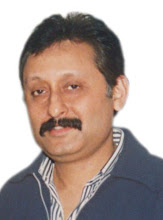With
the South Africans having put aside the matting and laid flat turf wickets,
enabled the development of classy batsmen of the likes of Bruce Mitchell and
Dudley Nourse. They could now go on the front foot without having to deal with
the springy, often spongy, bounce, or vicious turn, that were caused by the
ball gripping the mat. Turf wickets facilitated the straight bat technique with
the ball going through, as against matting pitches on which it stopped and
jumped. Trusting the true bounce, they were now able to build long innings.
Mitchell
was a talented allround cricketer, elegant opening batsman, fine spinner and brilliant
slip fielder, having taken 6 catches in the Melbourne Test of 1931-32. His
first wicket stand of 260 with Ivan Siedle against England
at Cape Town in 1930-31 was a record for South Africa England
Long
before the Pollocks made their appearance, Dave Nourse, the Grand Old Man of
South African cricket, and his son Dudley were their country’s stalwarts.
Nourse senior, born in Surrey ,
England Natal
against Transvaal in 1919-20. He played 45
Tests for South Africa from 1902-03 to 1924, and though he scored a hundred,
his most defining innings was the unbeaten 93 at Johannesburg in 1905-06 that
clinched South Africa’s first win over England. His first-class retirement
coincided with his son Dudley‘s Test debut.
Dudley
Nourse was a belligerent strokeplayer who breached the cherished average of 50
in Test cricket. In his stint of 34 Tests, Dudley Nourse scored 2960 runs at an
average of 53.81, logging up a record nine tons for South Africa Australia
at Johannesburg England at Nottingham
in 1947 was bettered only by the pair of Bill Edrich and Dennis Compton until
the 1980s. Dudley Nourse came close to emulating his father with his
first-class best of 260 not out, also for Natal
versus Transvaal in 1936-37. When he bid adieu
to the first-class game in 1953, his average of 65.85 in the domestic Currie
Cup was the highest ever.
(Author
Indra Vikram Singh can be contacted on email singh_iv@hotmail.com).



No comments:
Post a Comment